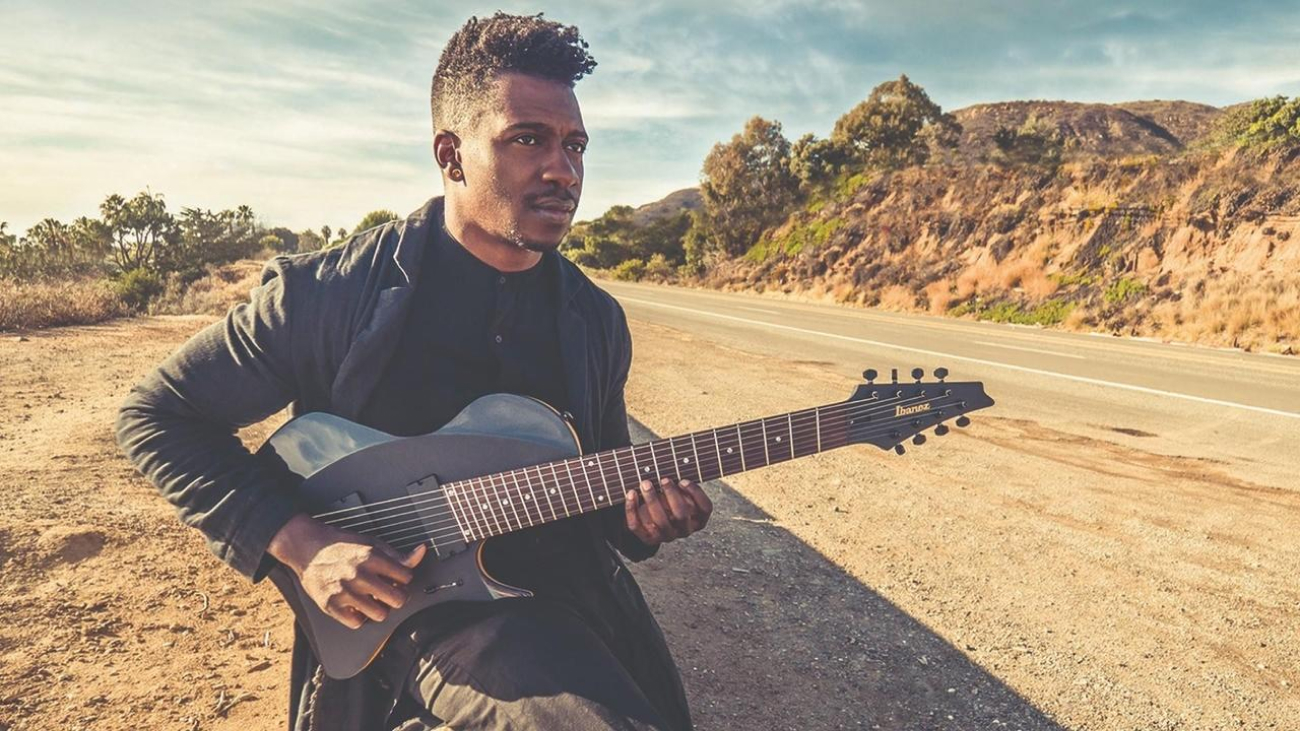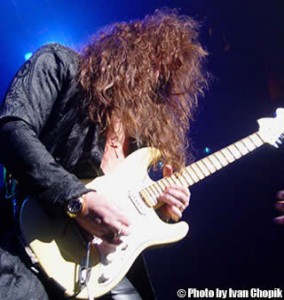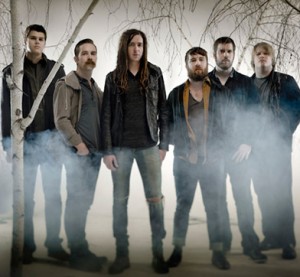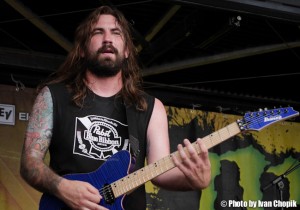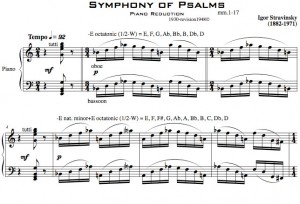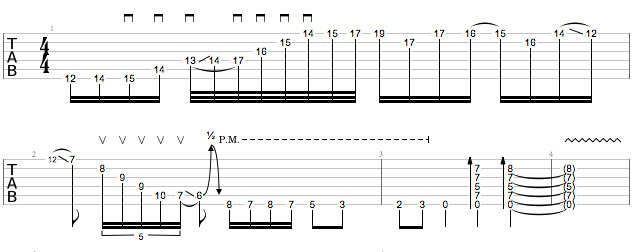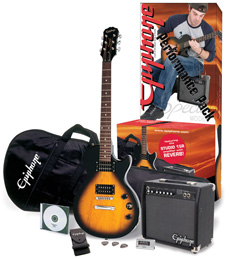It can be said that the key ingredient for a successful career in the music business is 5 percent inspiration and 95 percent perspiration. Whether you believe this statement to be true or not, most artists will agree that preparing for a live performance or tour, a phonograph recording session, or television appearance is serious business that requires hard work and discipline. A plan of attack is essential to ensure that time and money is spent most efficiently.
I interviewed three name-brand artists who give tips and advice about their rehearsal techniques: what works for them—and what does not. Our three artists include:
Raphael Saadiq: R&B Grammy award winning producer/singer/ songwriter who has worked with artists such as Baby Face, Ginuwine, and TLC.
Stephen Perkins: Drummer for the multi-platinum punk/metal/folk band Jane’s Addiction.
Wayne Coyne: Vocalist/guitarist of The Flaming Lips; hailed as one of the most innovative bands in modern music.
How long before a tour do you prefer to begin rehearsals?
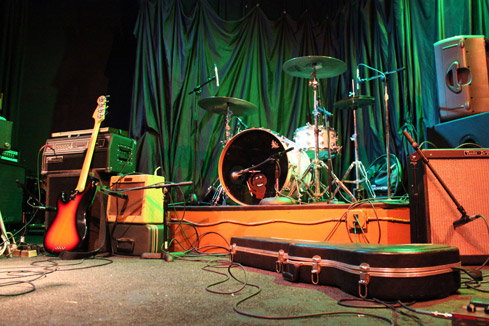
Having gear ready to go makes rehearsing easier.
Saadiq: In a perfect world, two months would be a dream to get your show really tight. However, three weeks is more typical for me simply due to scheduling difficulties and time contraints. You have to consider that your musicians may be involved with prior commitments even when a tour is scheduled far enough in advance.
Perkins: Any serious musician should always be in touch with their instrument, whether a tour is about to begin or not. However, before a big tour, that’s where the intensity and work ethic must kick in as a band. We usually start rehearsing 6 to 8 weeks before a tour starts.
Coyne: If we’re promoting a new record and want to try new things, it requires more time in advance of the tour to begin rehearsals. Generally, though, we only rehearse about one week or less before a tour starts—but that’s because we’ve been playing together for a long time and it doesn’t take much for us to come together as a band.
Do you prefer to begin rehearsals for a tour as a complete band, or do you prefer to begin with sectionals?
Saadiq: I prefer to begin rehearsals with rhythm sectionals—bass, guitar, and drums. The rhythm section is the foundation from which everything is built. If the rhythm section is not tight, nothing is tight.
Perkins: We frequently rehearse as a rhythm section without Perry because we have to be careful of burning out his voice. If I get a blister, I can put a bandage over it—but If Perry loses his voice, that’s another story. I also believe that a band who learns its songs without its singer can become that much tighter because there’s no lyric cues to rely on. You really need to know your parts and communicate well as a rhythm section.
When rehearsing new material or working with new musicians, do you prefer that everyone shows up well-prepared?
Saadiq: I’d like everyone to at least know all the parts and riffs. However, they don’t need to know the complete arrangement and whether a section is four or eight bars, since that’s always open to change once the rehearsals start.
Perkins: Every one is expected to do their homework and know their parts, but not in a way that makes them feel restricted or afraid to stretch out and try new ideas. The trick is to know your parts like the back of your hand, but not to just mechanically play the parts without listening to the other musicians and vibing off each other.
How do you make decisions regarding material to be performed, set lists, etc?
Perkins: I write the set list and then everyone looks at it and adds their suggestions. Of course, certain hits, like ‘Mountain Song’ or ‘Pigs in Zen’ have to be included and then I just go from there. I find that the sets that work best for us start out being really hard, and then go into a mellow section where the audience can breathe, then pump up again with more intensity, and finally end with something melodic to send the audience home happy. There is definitely more of a method to the madness of writing your set list then one may expect.
Coyne: Generally the band lets me do it; they’re perfectly fine with whatever I propose. We typically look at our set lists as an evolving process, though. You never really know what is going to work on stage while still in the rehearsal room. We get up on stage and if something doesn’t work, we change it.
Where do you prefer to rehearse for a performance or tour?
Saadiq: I own my own recording studio and rehearse in the main room. I want to be in a situation where I don’t have to break down my gear all the time and move it from one place to another. That’s how gear gets lost; turn tables, guitars, whatever. It’s just more comfortable when you have your own place any way you look at it.
Coyne: I own a big home in Oklahoma where we rehearse right in the living room and don’t have to worry about the neighbors. This approach may not be an option to musicians who live in cities like London, NY, or LA, though, since space is more limited. Nonetheless, I don’t think a band should have to rehearse in a big room with full production and PA. A small room playing acoustically should be fine. A band shouldn’t be about its amps, but rather about its music.
Do you prefer to establish a timetable or regular rehearsal schedule?
Perkins: Preparing for a tour requires focused energy—a regular schedule provides for discipline. We rehearse from 2:00 to 6:00 four to five times a week. In fact, everyone always shows up early and warms up so that we can even be more productive once we get started.
Coyne: We have a regular schedule that calls for rehearsals on the weeknights. That way, everyone can tend to personal obligations during the day, and be able to fully concentrate on rehearsals later. Sometime we start at 6:00 and take it to 12:00—and often beyond.
Do you have one person who leads your rehearsals or acts as the musical director?
Saadiq: I usually MD myself. However, sometimes my guitarist Rob Bacon, who is an amazing musician, co-leads rehearsals. I like feeding off his energy and ideas. It keeps things fresh gelling off people I trust. It also takes some responsibilities of my hands, too.

Time is a valuable commodity.
Coyne: I generally think most groups should have one guy that leads the band or otherwise you’ll have four or five cooks in one kitchen—and that can be a mess. As for as The Flaming Lips, I usually lead our rehearsals—but not because I’m better at it—but because rehearsals are held at my house and what I say, goes. [laughs]
Do you set up any rules or guidelines to ensure time is not wasted?
Saadiq: I have a ‘no guest policy’ most of the time. However, some times I’ll allow musicians to hang out and listen to our set just to get some immediate feedback that we can vibe off of. Generally speaking, though, rehearsals are serious business to me and I’d rather not have the distraction of other people hanging out.
Perkins: We have a ‘no drug policy,’ but we don’t have to worry about that any more—our party days are long behind us now. As for other rules, we prefer to have the least number of people in the rehearsal room as possible; so we seldom have guests. We also try not to take too many breaks as to not to disrupt the flow of what we came to do.
Do you have any tips on how to be more efficient in rehearsals or to generally save time and money?
Saadiq: No jamming between songs! Generally, my rehearsal policy is to ‘do what we got to do.’ It’s not stiff, or regimented, but rehearsals have got to be focused in order to meet your agenda.
Coyne: Show up on time! That way one person’s time is not viewed as more important than another. It’s not fair to have people waiting on each other to start rehearsals. If you’re working at McDonalds you don’t show up an hour late and say, ‘Hey everybody, I’m here, we can start serving now.’ It’s just common principles of professionalism and courtesy.
Do you record your rehearsals (either audio, or video)?
Coyne: Music is meant to work in front of an audience. If you tape a rehearsal and then watch or listen back to it, you may have doubt as to whether something will actually work. We prefer to let our actual audience dictate to us as to whether or not something works well and we just let things evolve from there. Our show is continually evolving and improving from the time the tour starts to the last day.
How do you keep rehearsals more fun and less repetitive or monotonous?
Saadiq: We pass a joint around the room and loosen things up a bit—and you can quote me on that. Sure, rehearsals should be taken seriously, but there’s a point where being too serious can be just as unproductive as not. It’s a fine line. Music still has to be fun.
Coyne: We go into rehearsals thinking that it’s not supposed to be fun and that it’s going to require focus and hard work. We have a job to do and that’s why we’re there. I’m not disappointed if things aren’t fun. Generally speaking, though, we make an effort in advance to ensure that our rehearsals are going to be comfortable. If it’s hot day, we put a fan in the room and make there are plenty of cold drinks. If it’s cold, we bring in a heater. It’s really all basic stuff.
How do you make technical and conceptual decisions in preparation for a tour (particularly costumes, stage sets and design, lighting, etc.)?
Coyne: We formulate all of our ideas based on everything that we wish that other bands would do live—but don’t. For instance, we always thought it would be great if a band would offer its audience the opportunity to listen to its show through headphones—in addition to blasting its music live through the PA. However, an idea like this really comes together through trial and error. We had an enormous crowd of people waiting for three hours just to return their headphones in Dallas—and needless to say, they complained. Eventually, we arranged a way that the audience could more conveniently pick up and drop off their headphones as they desired. Again, all of our ideas evolve over the course of a tour.
Do you do extensive sound checks and pre-show rehearsals?
Saadiq: A band shouldn’t have to spend much time rehearsing at sound checks if they do their homework before the tour begins. As for the actual sound quality, the soundman should have everything dialed in after the first couple of shows. Actually, it’s the opening act that usually needs more time to get things right. Therefore—unlike other headliners—I purposely try not to hog the stage so that the opener can get their fair chance to work things out if they need.
Coyne: If were trying something new, then yes—we’ll do longer checks. Otherwise, sound checks are boring. We just like to make sure that were not going to get shocked and things work well, is all.
Do you have any good luck charms or rituals you perform in preparation of a performance as a result of superstitions?
Saadiq: I always meditate by myself to get the butterflies out. Then, I get with the band in a huddle like a football team to get them all pumped up—then we charge the stage with the intent to kick butt.
Perkins: We pray together as a band before we go on and try to rid ourselves of any negative energies of the day. We also play music and jam before our shows. We have a full setup back stage to help us warm up and get in the vibe of our performance.
How is rehearsing for recording different than for a live performance or tour?
Perkins: When rehearsing for a tour, things are little bit more etched in stone in terms of the parts that everyone is going to play. However in the studio, the best thing is to keep your options open, tempos, etc. You don’t want to pin anything down and want to keep things open to experimentation, to find what really pays off on tape.
How long does the pre-production process with your producer typically last before you begin to record?
Perkins: If a new band is looking for an identity, it may take a while for them in preproduction to figure things out with a producer. It may take one band two weeks while another may take one month or even more. However, it was always a quick process for Jane’s. On the first record, we did no preproduction. We just went into the studio and played live. We formulated our song ideas and recorded everything in three days. We really set out to capture our natural sound and vibe and I think most will agree that we did just that.
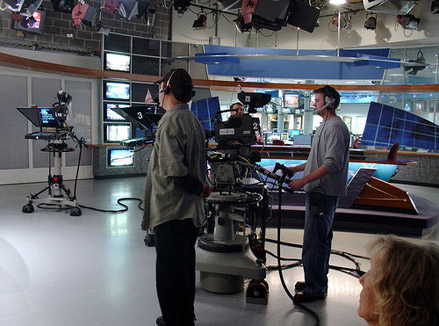
Rehearsing for a TV performance is an art of its own.
In the studio, do you generally like to run a tune a few times before actually going for a take?
Coyne: The tape is always rolling with us. We don’t want to lose what could be a magical pass. Music works best when people are relaxed—so we’re careful not to impose any conditions on the process, like—okay, this one is going to be the take. We like to run through a song a few times while recording with the thought in mind that we’re going to listen back to it and let the song evolve as it may. Maybe we’ll try the song faster. Maybe we won’t have to change a thing. Overall, it just keeps the mood and energy more relaxed.
What are some of the special considerations and limitations that TV presents and how do you prepare for them?
Perkins: Most TV studios are typically not large enough to handle the intensity and volume that a larger concert venue can, nor is there much room on stage either. This presents a small challenge. I simply adjust by playing less drums and thinner cymbals. As for other restrictions such as profanities, etc—anything really goes in our book. A band should always be free to do as they do. The TV producers can always edit out what they don’t want to hear later.
Coyne: I think it’s important to remember that it’s not your show—it’s Jay Leno’s, Conan O’Brien’s or whomever’s show. You’re only a small part of the entertainment that night. Therefore, whatever they ask of you, you should be prepared to do it—no matter what it is. They don’t need your band to make the show good. It’s an opportunity for you to get exposure and you should be thankful and nice in return.
How is the sound check / rehearsal / preparation process different under studio and live taping considerations?
Saadiq: The producers of the show need to ‘block’ the cameras—that is, they need to figure out cues of when you’ll be doing what—when the guitar player solos, when the drummer plays a big fill, etc. Therefore, you have to run the song a few times. You may run just the vocals, then the drums, then the vocals, etc. Once all the cameras are set, then you usually need to run the song as a complete band a few times so they can test everything out.
Do you have any worst & best live television experiences you’d like to share?
Saadiq: Earlier in my career, I had to perform to a reel-to-reel tape recording during a live performance. Halfway into the song, the tape stretched and began playing my music at different tempos from slow to fast. All we could do was play right along. The audience knew what was happening, but they respected that we continued to smile and tried to turn a bad situation into good. At the end of the day—that’s really all you can do. As the saying goes, you can’t stop the waves, but you can surely learn how to surf. Peace!






